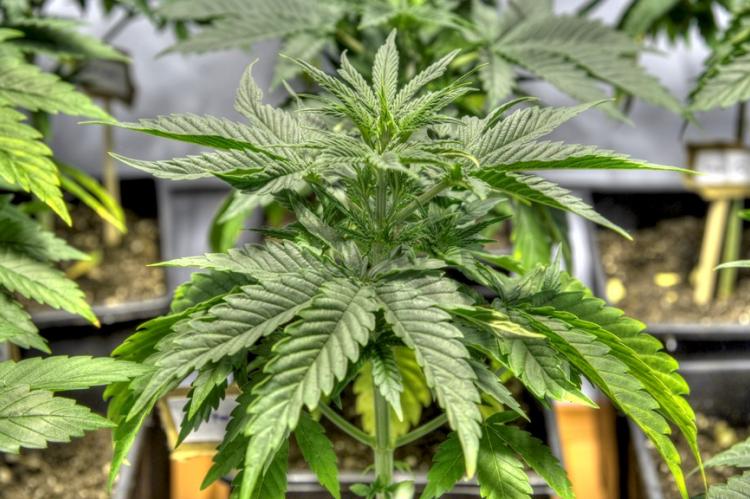Quality Control in Cannabis and Hemp
From farm to lab to finished product, quality control is essential for consistent, clean cannabis products.
With headlines lingering about illnesses from vape cartridges, molds in cannabis flower, and too much THC in products that claim otherwise, on the changing tide of legalization, quality control in cannabis and hemp production has never been more critical. All across the nation, a spotlight is shining on an industry that just recently stepped out of the shadows of prohibition, and everyone is watching. Each new headline is an opportunity for the opposition to say, “I told you so.”
As federal legalization continues to inch forward, many producers are hesitant of the looming FDA regulations; however, with quality assurance and quality control practices in place, meeting any future regulations becomes easier. Consistent practices are at the heart of a good quality control program. Fortunately, other industries, such as food and beverage, have paved the way, but cannabis producers must change their approach.
Unlike the former black market, legal cannabis producers can’t just say their products are safe; they must prove it through the use of consistent, repeatable processes, which will meet the demands of the governing authority.
AUTOMATING CULTIVATION PRACTICES
In cannabis cultivation, being able to replicate precise environmental conditions, nutrient formulations, and growing medium is essential for producing a quality cannabis crop. As such, many indoor cultivation facilities turn to grow automation systems such as UrbanGro and BrainGrid to help monitor and control specific recipes for perfect, unwavering quality crops.
Besides providing the key for repeatable results, cultivation automation and monitoring also offer growers records of their methods and processes, which may be necessary for future FDA compliance. Just as seed-to-sale tracking systems provide data to state regulators, when federal authorities take over, producers should expect compliance requirements to continue, if not become more stringent.
Likewise, hemp producers should look to the cannabis industry for the foreshadowing of regulations to come.
CONSUMER PACKAGED GOODS (CPG)
Whether being used by humans or by pets, cannabis and hemp are consumable products; therefore, they will likely have similar rules and regulations of other consumer packaged goods, such as potato chips, snack foods, and bottled beverages. Although the FDA doesn’t physically test products, they do lay out the groundwork for best practices.
CPG companies must conform to FDA regulations for food safety standards, including meeting more significant sanitation requirements, as well as comply with practices that ensure the safety, quality, and authenticity of products they sell. No differently than Tyson may be involved in a turkey a salmonella recall, cannabis and hemp producers should expect to be scrutinized for contaminants, toxins, fungus, and molds.
Technology solutions to help with FDA compliance in this arena already exist. FoodLogiq, a full-service software service provides food and beverage producers with several solutions including,
- Manage + Monitor
- Track + Trace
- Recall + Response
As cannabis and food production continue to merge, expect to see technology track and trace solutions like this emerge to combine forces with the cannabis industry.
FOOD SAFETY MODERNIZATION ACT (FSMA)
Signed into effect in 2011 by President Barack Obama, the FDA Food Safety Modernization Act is designed to help prevent food-borne illnesses rather than simply respond to them when they happen. Additionally, the FSMA provides standards for growing, harvesting, packaging, and handling of products intended for human and animal consumption.
As an agricultural commodity crop, the industry can expect to fall somewhere within reach of these laws as well.
GOOD MANUFACTURING PROCESSES (GMP)
GMP is another quality acronym that is frequently mentioned in cannabis and hemp production. Under the authority of the FDA and the federal Food, Drug, and Cosmetic Act, GMP regulations mandate that manufacturers of drugs, take certain additional steps to ensure the safety, purity, and effectiveness of their products.
To meet the GMP standards, many CBD production companies must be prepared to implement intense record-keeping, hire qualified personnel, maintain equipment verification and process validation, as well as implement stringent sanitation and cleanliness standards.
ASTM LABORATORY STANDARDS
When a consumer buys a bottle of ibuprofen, they know that each caplet contains 200mg of the active ingredient, because of pharmaceutical testing standards established by ASTM International, formerly known as American Society for Testing and Materials, the international standards organization which develops and publishes technical standards for a variety of materials, products, systems, and services.
Although the ASTM is working creating standards for cannabis testing, to date, there are none, which means there’s no universal method for screening for cannabis potency. So, the process that one lab uses may be very different from the techniques another laboratory uses, which can result in conflicting test results.
REGULATION ISN’T A 4-LETTER WORD
While we’d like to think that everyone approaches the industry with good intentions, the fact of the matter is that without rules, the door is open to shady practices and dangerous products. Although cannabis and hemp consumption has been a part of human existence for thousands of years, unfortunately, modern chemicals, such as pesticides, exhaust fumes, and manufacturing pollution, have altered the landscape for cultivation practices and present potential problems for consumers.
Standards in testing requirements protect the consumer, as well as the producer. Implementing quality control practices will help producers prepare for the coming regulations, which are likely to be enforced by the federal authority when national legalization occurs.
- Log in to post comments

